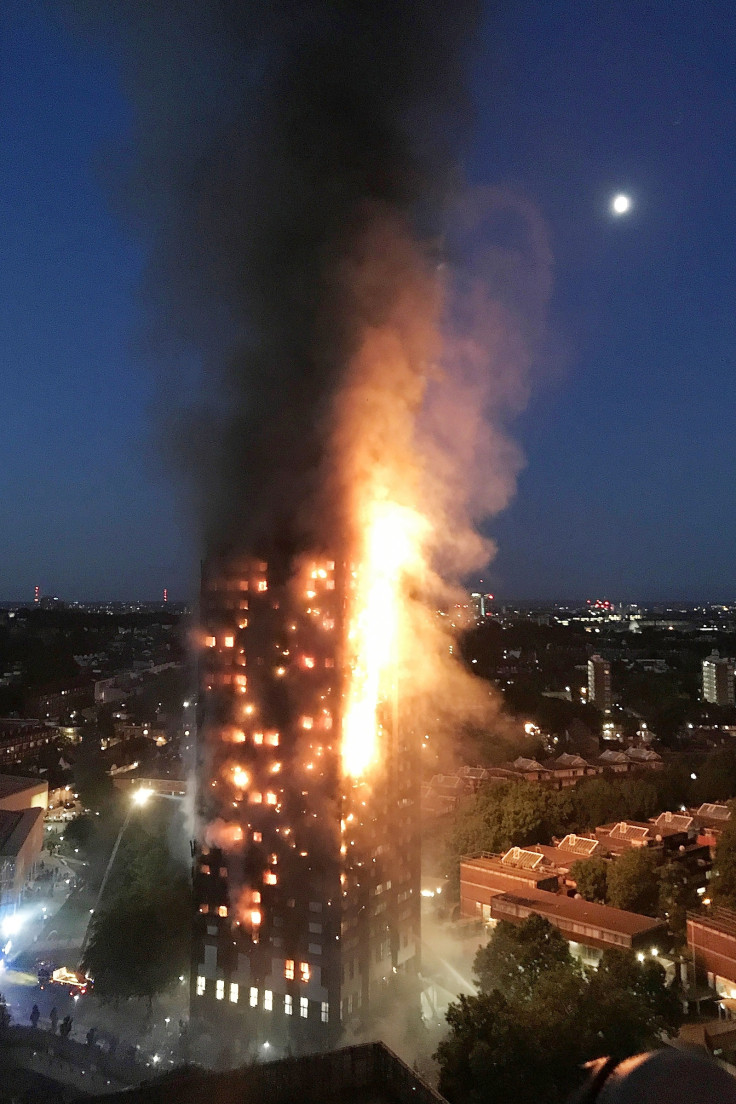Grenfell Tower cladding burned like 51 tonnes of pinewood says fire expert
Energy output of cladding with polyethylene foam insulation would be equal to burning 51 tonnes of pinewood.
The cladding on the outside of Grenfell Tower could have burned as quickly as petrol, according to a fire safety expert.
The polyethylene plastic core of the cladding used on the tower block was highly flammable and its energy output would have been equal to burning 51 tonnes of pinewood, University of Leeds research suggests.

Dr Roth Phylaktou, a senior lecturer specialising in fire and explosion engineering at the university, told the Victoria Derbyshire show that the cladding combined with the insulation offered the "optimum for vertical fire spread."
An estimated 18 tonnes of insulation foam and eight tonnes of cladding panels were attached to the tower block, university analysis has revealed.
"If you set that on fire near the bottom you can imagine what would happen and how fast the fire will grow," Phylaktou said. "This is not dissimilar to the wood cribs that we use in fire science to create fast-growing fires that reach a large size very quickly."
He stressed that the polyethylene core in the cladding "would have burnt as quickly as petrol" and that the gap between the panels and insulation foam would have created a "chimney effect", intensifying the heat and the speed of the fire.
"The insulation formed another combustible layer underneath which would also give off toxic fumes," he added.
Theresa May recently told MPs that cladding on 120 tower blocks across the UK was found to be combustible.
At least 80 people lost their lives in the devastating Grenfell Tower fire and hundreds were left homeless. It was revealed earlier this week that only a tiny fraction of donations have reached the victims so far. Hundreds of boxes of clothes are being stored at the British Red Cross' warehouse in Cheshire.
Around £20m is believed to have been collected for the victims and their families, but less than £800,000 has been given out so far, according to a BBC investigation.
© Copyright IBTimes 2025. All rights reserved.






















